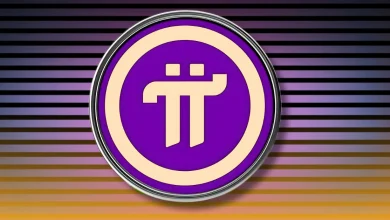
South Korean regulators raised concerns over high-leverage crypto lending by Upbit and Bithumb
Upbit paused its Tether lending service, while Bithumb maintained 4x leverage
Authorities plan interim guidelines ahead of South Korea’s new crypto laws.
South Korea’s top financial regulators are sounding alarms over crypto lending and margin trading services launched by major crypto exchanges.
This move could shake up the crypto market, tightening rules and changing how investors trade and borrow digital assets.
As per a report from Korea JoongAng Daily, the Financial Services Commission (FSC) and Financial Supervisory Service (FSS) recently met with leaders from five big crypto exchanges to address concerns over risky high-leverage products and how investors might not be fully protected.
Bithumb and Upbit Launch Crypto Lending with Leverage
On July 4, Bithumb launched a crypto lending service that allows users to borrow digital assets with up to 4x leverage. Customers can use either cryptocurrencies or Korean won as collateral. The service supports 10 major coins, including Bitcoin, Ethereum, Ripple, and Tether.
That same day, Upbit introduced a similar product for Tether, Bitcoin, and Ripple. Users can borrow these assets by pledging crypto or fiat as collateral. Both services also make it possible for users to short sell, meaning they can borrow and sell assets they don’t currently own.
Regulators Push for Safer Crypto Lending
Regulators are especially worried about Bithumb’s 4x leverage, which is double the 2:1 limit allowed in the Korean stock market. Authorities say the services operate in a legal grey area and lack strong investor protection measures.
In response, Upbit paused its Tether lending product, concerned that lending stablecoins for fees might count as consumer lending under Korean law. Bithumb also made some changes, but it kept its fourfold leverage and paused new lending applications because its supply ran out.
To tackle these issues, the FSC and FSS plan to team up with the industry to create voluntary rules for crypto lending and margin trading. This is seen as a needed step until Korea’s new crypto laws are fully in place.
However, there are concerns that stricter laws may push users offshore, which could weaken Korea’s market control and investor safety.
South Korea Boosts Crypto Innovation With New Initiatives
This crackdown on crypto lending comes as South Korea shifts its overall crypto strategy. The Bank of Korea recently renamed its Digital Currency Research Lab to the Digital Currency Lab. The FSC also plans to introduce spot crypto ETFs by late 2025, including clear investor protections like custody, operation, and evaluation standards.
South Korea’s central bank is also launching a Virtual Asset Committee to monitor stablecoins and crypto, working closely with the government on new laws. Eight major banks aim to launch won-backed stablecoins by 2025-2026.
South Korea is trying to strike a careful balance. Will other nations follow suit?
Never Miss a Beat in the Crypto World!
Stay ahead with breaking news, expert analysis, and real-time updates on the latest trends in Bitcoin, altcoins, DeFi, NFTs, and more.
FAQs
South Korea’s FSC and FSS are tightening rules on high-leverage crypto lending (up to 4x) due to investor protection concerns, targeting exchanges like Bithumb and Upbit.
Upbit paused Tether lending over concerns it might be considered consumer lending under Korean law, risking regulatory violations.
Korea is cracking down on risky lending while pushing for spot ETFs, stablecoins, and central bank-led crypto initiatives.
Trust with CoinPedia:
CoinPedia has been delivering accurate and timely cryptocurrency and blockchain updates since 2017. All content is created by our expert panel of analysts and journalists, following strict Editorial Guidelines based on E-E-A-T (Experience, Expertise, Authoritativeness, Trustworthiness). Every article is fact-checked against reputable sources to ensure accuracy, transparency, and reliability. Our review policy guarantees unbiased evaluations when recommending exchanges, platforms, or tools. We strive to provide timely updates about everything crypto & blockchain, right from startups to industry majors.
Investment Disclaimer:
All opinions and insights shared represent the author's own views on current market conditions. Please do your own research before making investment decisions. Neither the writer nor the publication assumes responsibility for your financial choices.
Sponsored and Advertisements:
Sponsored content and affiliate links may appear on our site. Advertisements are marked clearly, and our editorial content remains entirely independent from our ad partners.







